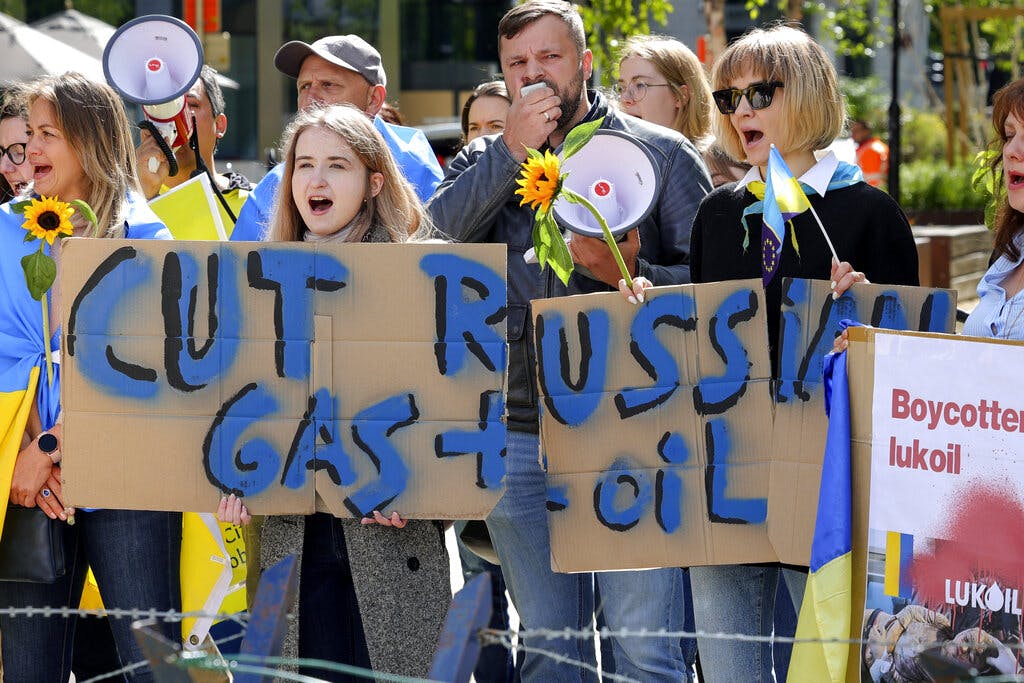Russia Will ‘Benefit’ From EU Oil Ban, Moscow Paper Says
According to the Komsomolskaya Pravda report, Russia has been diverting oil supplies to Asia from Europe since April.

Russia’s aggressive assault on reality seems to know no bounds. In the latest inversion of what to the rest of the world is called the truth, a popular Russian newspaper, Komsomolskaya Pravda, claimed that Russia actually stands to benefit from a partial EU oil embargo.
The European Union’s sixth wave of sanctions on Russia following its invasion of Ukraine in February amounts to an embargo on two-thirds of its oil imports from the country and as of Monday essentially broke its energy dependence on Russia. As the Telegraph reported, though, Russian oil through the Druzhba pipeline will be exempt from the embargo for Hungary, the Czech Republic and Slovakia.
Serbia, not part of the EU, has already cut a deal with Moscow to ensure its Russian oil keeps flowing. EU sanctions on Russian gas, which would be even more contentious than oil, seem remote in the near future, the British daily reports.
According to Komsomolskaya Pravda, the picture for Russia, if imperfect, looks far rosier: “The oil market is a complicated thing” the paper quotes the director of the Russia-based Energy Development Fund, Sergey Pikin, as saying. “If you are trying to limit one of the largest producers of oil and petroleum products in the world, then there is an increase in prices. And the producer will end up selling the same oil for more, just to someone else.”
That is apparently already happening. According to the Komsomolskaya Pravda report, Russia has been diverting oil supplies to Asia from Europe since April and in May, it “delivered three times more oil and oil products to India and China than to the Old World.” By the end of the year, the report continued, “It is possible that our country will not send anything to the EU at all.”
It’s worth noting that for all the backslapping in Brussels, these new sanctions are far from going all the way. As the BBC reminded, “The EU-wide ban will affect oil that arrives by sea — around two-thirds of imports — but not pipeline oil, following opposition from Hungary.” Russia now supplies 27 percent of the EU’s imported oil and 40 percent of its gas, and according to the BBC, the EU pays Russia about $430 billion a year in return.
The Russian paper had a field day with the maritime element of the ban, having a professor at the country’s Higher School of Economics, Evgeny Kogan, weigh in: “The ban on supplies of crude oil by sea will be extended for six months, oil products for eight,” he said. “That is, from the embargo, so far we have only the loud name of the creeping process for floating craft. We do not rule out that some EU leaders secretly hope that a complete ban will not come.”

